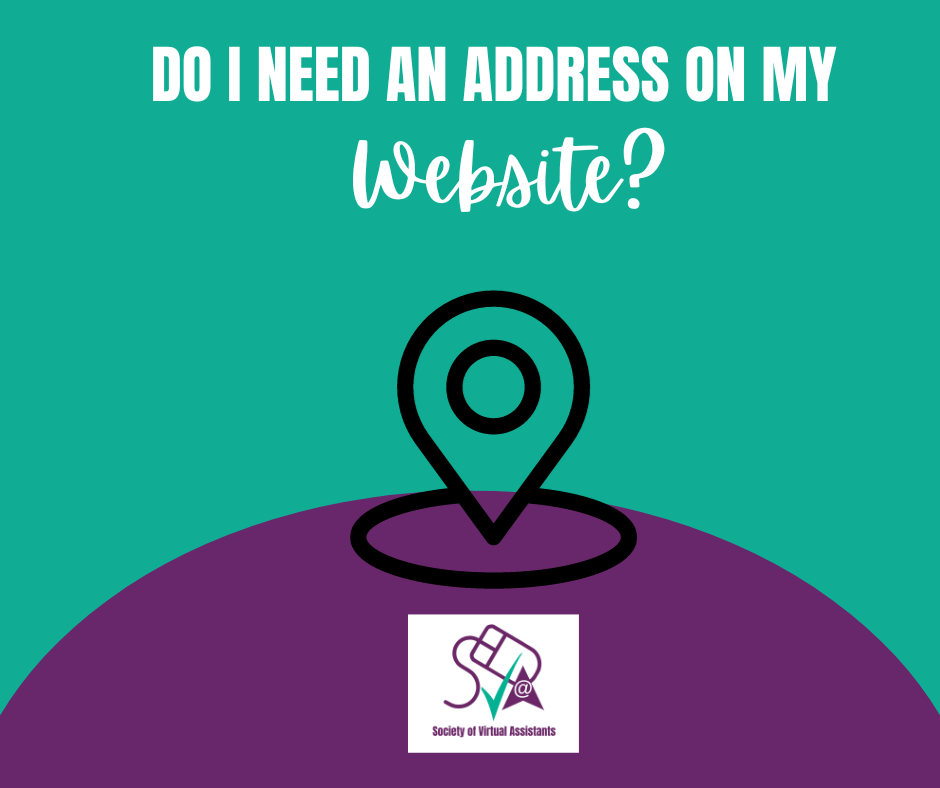Do I need to have a postal address on my website?

This question has been rumbling for a while and has always been a bit of a grey area, so after a question was asked on our Facebook Group last week, and having received some conflicting information, I decided that we need to find out the answer to this issue once and for all, so I embarked on a fact-finding mission.
In the last week, I have spent a great deal of time speaking to:
The Business Support Helpline
– HMRC
– Trading Standards
– Citizens Advice
– 1 Business /UK Trade solicitor
– 1 GDPR-focused solicitor
And you will be pleased to know that they were all united in their response, which is reassuring that this advice is correct.
So, what is the actual answer to the question, ‘Do I need to add a postal address on my website?’
Limited Companies
- If you are a Limited Company (registered at Companies House), there is no question here, it is a legal requirement to display your company’s registered office address on your website. This information doesn’t have to be on every page of your website, but it must be easily found– for example, on your website footer or Contact Us page and not hidden in your Privacy Policy.
So, if you are a Limited company, I’m afraid there is no side-stepping on this – you absolutely must have your registered address on your website.
Sole Traders
Right, onto sole traders – this is where it gets slightly more complex because some need it and others do not.
The advice I was given by all of the above was this:
As a sole trader, you must have an address on your website if:
- You sell directly through your website (e-commerce activities).
If your customers can buy things and pay for them on or through your website (using online payment tools such as Stripe, PayPal, Square, WooCommerce, etc.), then you need to have a geographical address on your website.
So, if you sell packages, power hours, products, services or anything else, and someone can purchase them via your website without having to communicate with you directly, then you need an address on your website.
The law is not clear on whether or not this can be a PO Box address as it suggests that it should be a geographical address so consumers can see your location (so this could still be an accountant’s or virtual office address – however, it must be somewhere that you can receive mail from).
- If your clients actively sign your contracts directly through or from a link on your website, you must provide a postal address where you can be contacted on your website.
You do not need to have an address on your website if:
You have a simple website that outlines who you are, what you do, a blog, what your prices are and a contact form and have no e-commerce activities on your website.
But
And this is important; you must include your address on your client contracts, invoices and any legal paperwork shared between you and your potential/current clients.
The Advisors I spoke to referred to the following UK Business and Trade Laws whilst researching this for me, and if you would like to read more about the individual laws state about what goes on your website, they are:
- Companies Act 2006
- Company, Limited Liability Partnership and Business Names (Sensitive Words and Expressions) Regulations 2014
- Company, Limited Liability Partnership and Business (Names and Trading Disclosures) Regulations 2015 – came into force 31st January 2015.
- Online and Distance Selling Act 2000
- GDPR and Data Protection Act 2018 (DPA 2018
Useful reading:
Suzanne Dibble: https://suzannedibble.com/do-i-need-to-disclose-my-home-address-on-my-website/
Business Companion guide, as there are particular rules that only apply to limited companies (who are registered
Here is a handy GOV.UK guide on displaying your business information: https://www.gov.uk/running-a-limited-company/signs-stationery-and-promotional-material
